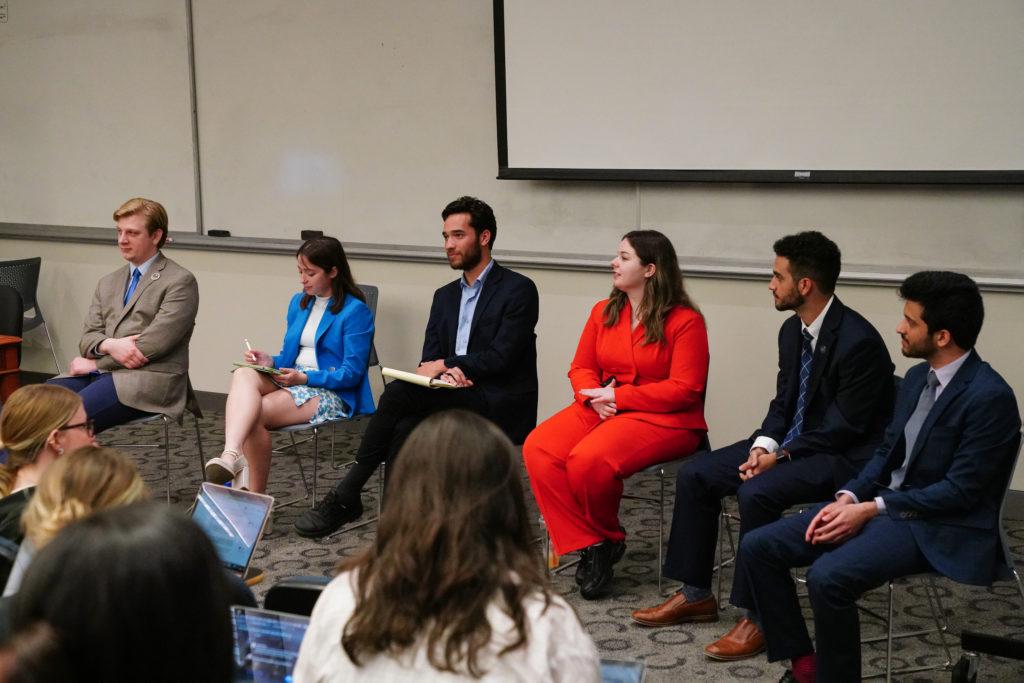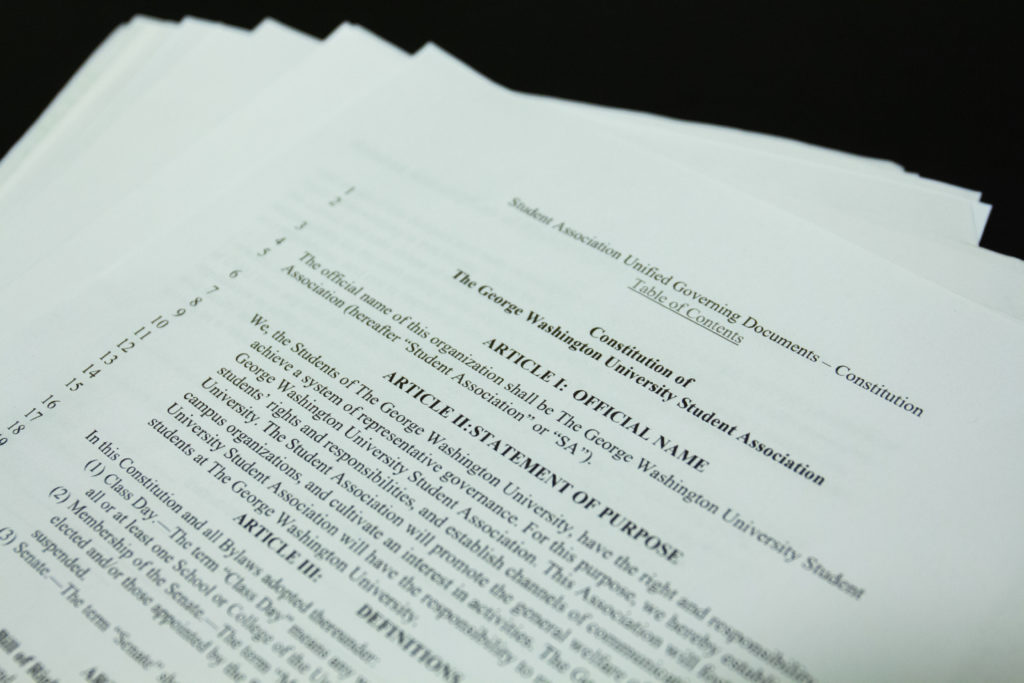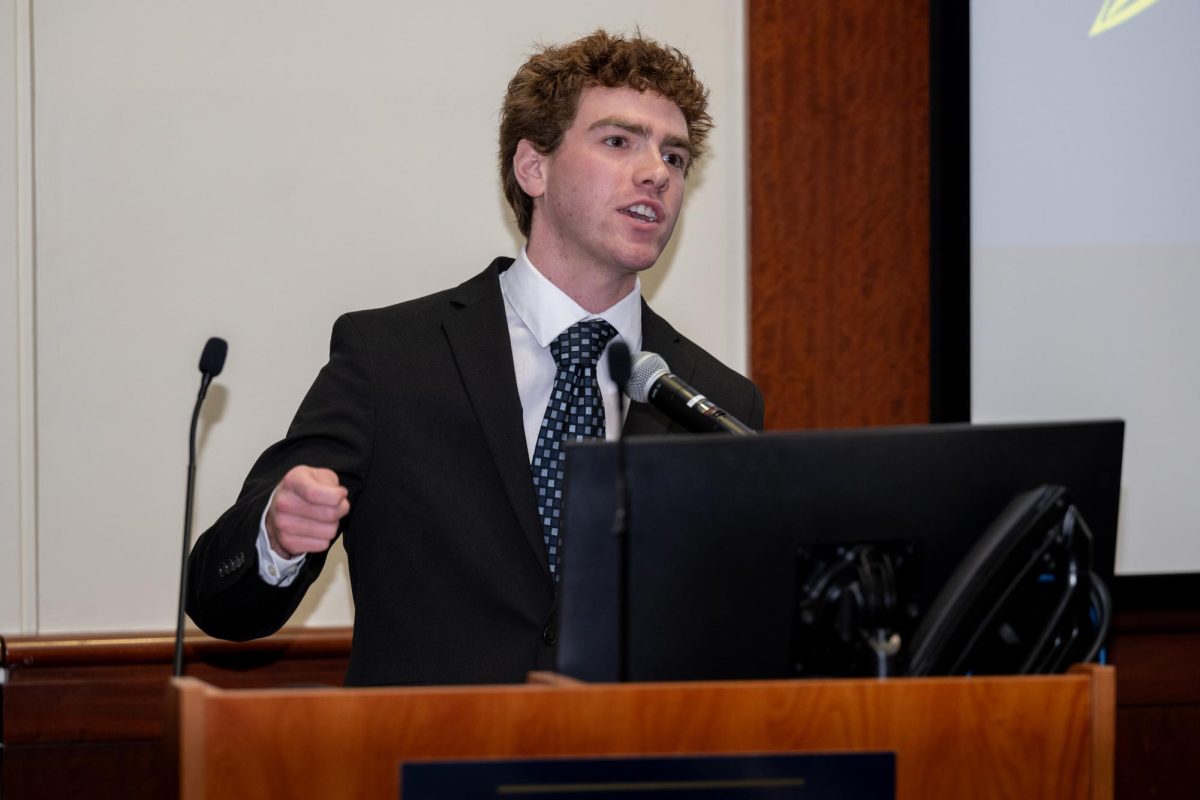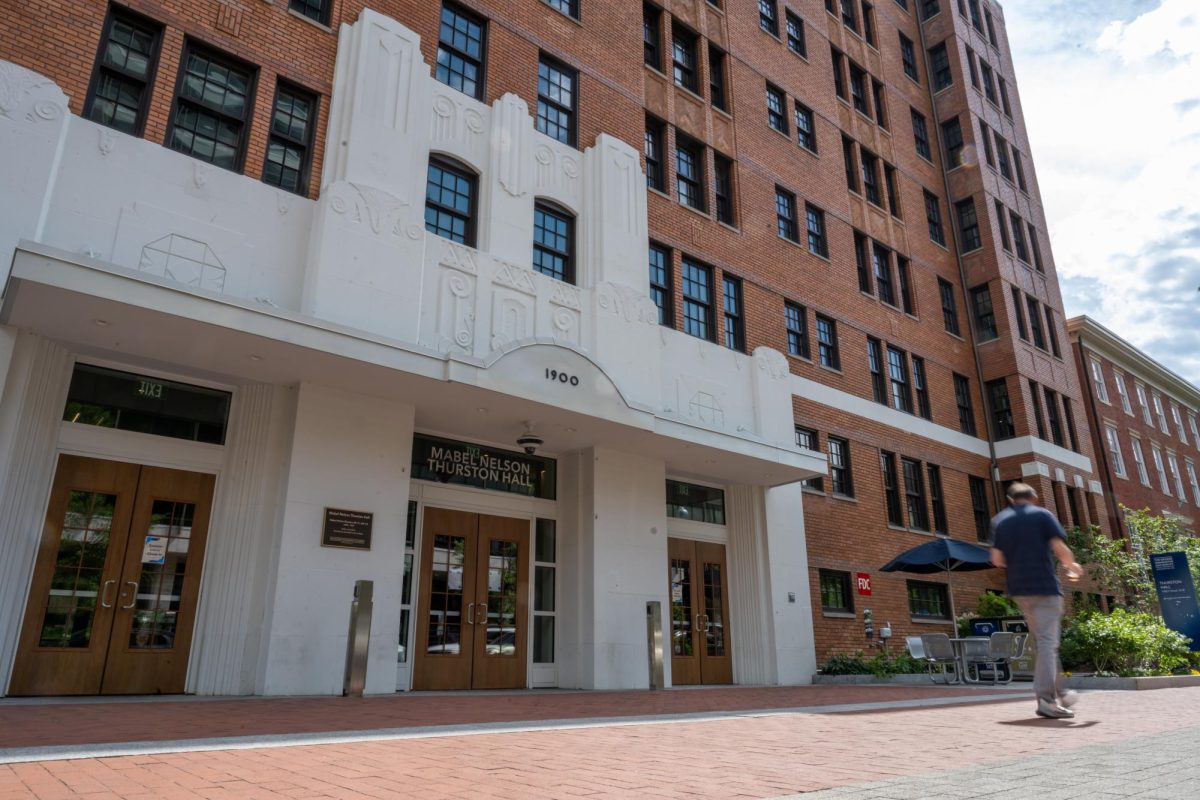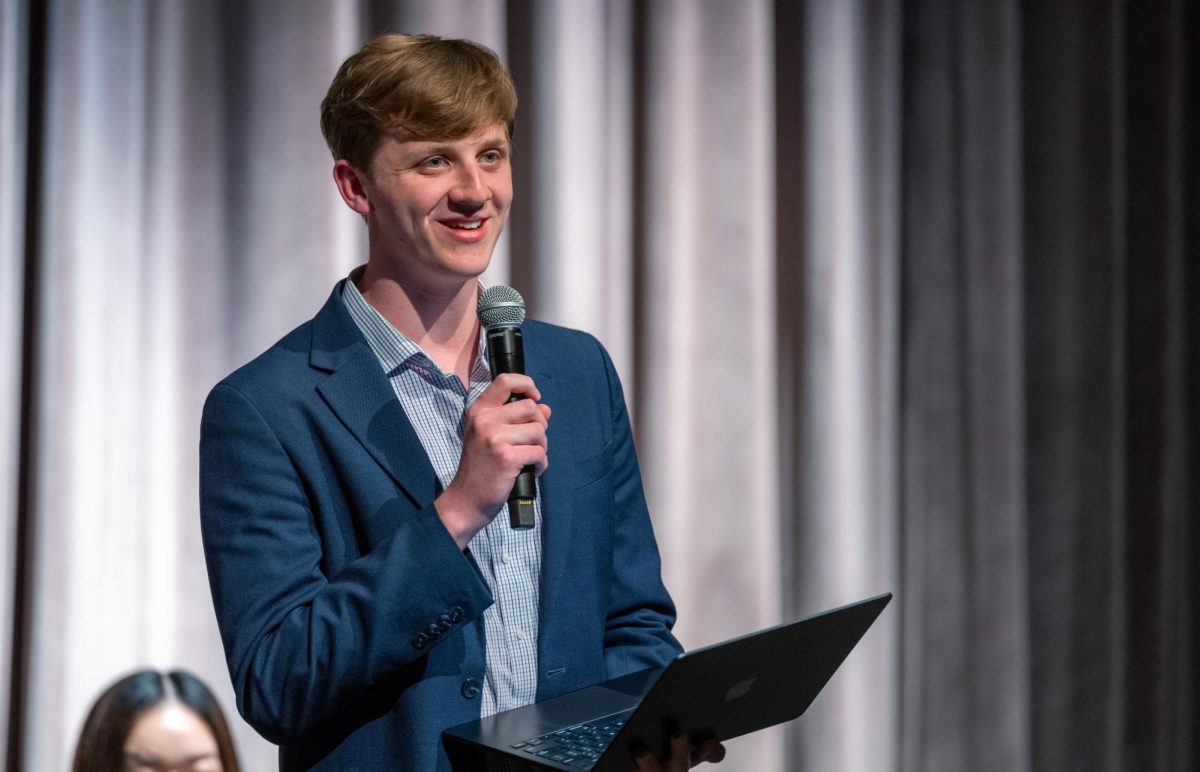This year’s candidates vying for the top spots in the Student Association have high hopes to improve student life through a variety of platform points.
The SA’s seven presidential and vice presidential candidates hope to tackle issues ranging from financial transparency in the SA, safety on campus and extended hours in the Lerner Health and Wellness Center. But despite candidates’ promises, some of their plans overlook the state of GW’s policies and programs as well as the bounds of the SA’s jurisdiction.
The Hatchet reviewed the candidates’ ideas for misleading, inaccurate or incomplete information to provide additional context as students vote this week. Here is what we found:
Candidates for president
Keanu Rowe
Rowe, a junior majoring in political science and the SA’s executive chief of staff, made his platform available to the public March 26 in an Instagram post.
Platform point: Rowe vows to organize a University-wide field day, including pickup games of basketball, Spikeball and football.
Check: While not officially dubbed a “field day,” the Office of Student Life organizes Fountain Day every April on the Mount Vernon Campus. The event commemorates when the fountain in the Mount Vernon Campus Quad turns on, bringing students together for yard games, scavenger hunts and yoga sessions.
Platform point: Rowe wants to improve the accuracy of SafeRide arrival time technology.
Check: Officials have said a new SafeRide app with “improved features and functionality” is in the works, and they plan to unveil the software by the fall semester.
Rami Hanash
SA Sen. Rami Hanash Jr., GWSB-U, a sophomore majoring in marketing, made his platform public March 29 in an Instagram post. He also provided additional information about his platform in an email to The Hatchet.
Platform point: Hanash called for more funding transparency for the SA’s annual general allocations process.
Check: The SA Finance Committee – which decides how to allocate the SA’s funds – makes its meeting schedule, agenda and minutes available to the public. Financial reports that include past approved general allocation breakdowns are also public.
Nathan Orner
Orner, a junior majoring in political science and the SA’s former director of transportation, laid out his platform to the public Tuesday in an Instagram post. He continues to post additional information about each platform point on his campaign Instagram account.
Platform point: Orner wants to close off H Street between District House and Kogan Plaza to vehicles.
Check: D.C. officials decide on whether to close streets to vehicles. The mayor can choose to close a street if the D.C. Council submits a resolution saying the street is “unnecessary for street or alley purposes.”
Edy Koenigs
Koenigs, a junior studying religion and political science and the former SA senior policy adviser, published her platform March 11 in an Instagram post.
Platform point: Koenigs hopes to make diversity, equity and inclusion training for professors mandatory.
Check: Professors can request DEI training from the Office for Diversity, Equity and Community Engagement. The SA can only make recommendations to the University, and it cannot require officials to take any action, per the SA constitution.
Platform point: Koenigs said she will repeal the part of the SA finance bylaws that does not allow student organizations to spend money on food.
Check: The senate revised its bylaws in February to allow funding for food, with prioritized support for cultural and religious food. Prior to the revision, the SA limited funding solely to cultural foods.
Arielle Geismar
Geismar, a junior majoring in international affairs and the president of the Residence Hall Association, posted her platform to Instagram March 26.
Platform point: Geismar said she wants to advocate for more health resources and services at the Student Health Center to support women’s health.
Check: Currently, the SHC lists women’s health as one of its primary care services and offers female contraceptive counseling and prescriptions, pregnancy testing and referrals for abortion and gynecology services.
Candidates for vice president
Arya Thakur
Thakur, a sophomore majoring in international affairs and finance and the SA treasurer, announced his platform in an Instagram post Thursday. He provided more information about his platform to The Hatchet via email.
Platform point: Thakur wants to bring a football team back to GW after the program was eliminated following its 1966 season.
Check: Officials announced in August 2020 they would discontinue seven athletic programs as the athletic department’s revenue gap neared $200 million. The eliminated programs included men’s rowing, sailing, men’s and women’s squash, men’s indoor track, men’s tennis and women’s water polo. The department’s budget and program cuts likely limit the possibility of a football team, which the University cut after the 1966 season due to its high costs.
Demetrius Apostolis
Apostolis, a sophomore majoring in criminal justice and history and the senate chairperson pro tempore, CCAS-U, shared his platform in multiple Instagram posts last week. He also shared more insight into his platform in an email to The Hatchet.
Platform point: Apostolis will call for officials to make their funding more “transparent.”
Check: Officials publicize an annual financial report that includes a percentage breakdown of the operating revenue and expenses. Some information, like allocations to specific departments, is unavailable to the public. The Board of Trustees agreed to “review” its policy on disclosing donations after 14 student organizations and 17 professors sent a letter requesting the University disclose gifts in January.
Platform point: Apostolis wants to make compost bins available in dining halls.
Check: The University composts leftover food from the dish return in its dining facilities.


